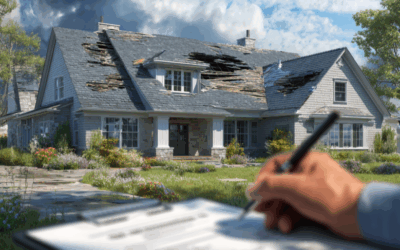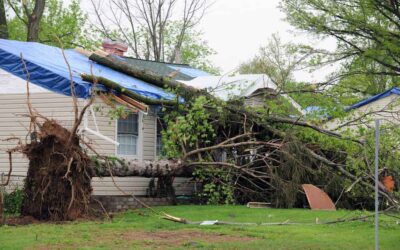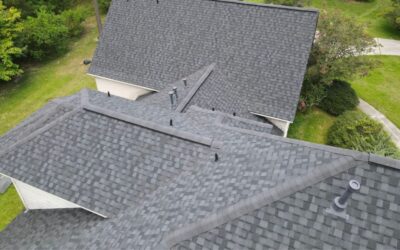Commercial Roofing Houston: Guide to Repair, Replacement & Maintenance
Running a business in Houston means you’re constantly strategizing, innovating, and protecting your assets. Among those assets, your commercial roof often goes unnoticed until a problem arises. But when it does, it can bring operations to a grinding halt. Think of your roof as the unsung hero of your business — silently shielding your inventory, equipment, employees, and customers from the relentless Texas elements. This guide isn’t just about shingles and membranes; it’s about understanding how to safeguard your business continuity and bottom line. We’re going to demystify commercial roofing services, giving you the clarity and confidence to make informed decisions.
Why Houston Businesses Need a Reliable Commercial Roofing Company
Running a business in Houston is challenging enough — managing your roof shouldn’t be another headache. For business owners, trying to handle commercial roofing without expert help is like navigating Houston’s freeways blindfolded. That’s why partnering with a reliable commercial roofing company like Shield Roofers isn’t a luxury; it’s a necessity. Your roof protects your assets, ensures energy efficiency, and preserves the structural integrity of your commercial property.
With years of experience serving Houston-area business owners, we understands the region’s demanding climate, strict building codes, and the importance of using quality materials designed to last. Our team of trusted roofing professionals specializes in protecting commercial buildings from heat, humidity, and severe storms — helping you avoid costly repairs and downtime.
When it comes to keeping your business covered, Shield Roofers delivers the expertise, reliability, and long-term value your roof deserves.
The Unique Challenges of Houston‘s Climate
Houston’s climate is a force unto itself. We experience everything from scorching summer sun that bakes and degrades roofing materials, to torrential downpours that test every seam and drain. Then there’s the humidity, a constant presence that can accelerate mold growth and material deterioration. Let’s not forget the hurricane season, where high winds and extreme rainfall can turn minor issues into catastrophic failures overnight. A commercial roof here isn’t just dealing with typical wear and tear; it’s battling an unrelenting environmental assault. This unique blend of weather patterns means that a “one-size-fits-all” approach to roofing simply won’t cut it. You need a roofing solution and a service partner that understands how to build and maintain roofs specifically to withstand the rigors of the Gulf Coast.
Understanding Commercial Roofing Services: Repair, Replacement, and Maintenance
Think of your commercial roof’s lifecycle much like a car. There are times it needs a quick fix, times it needs a major overhaul, and times it just needs regular servicing to keep it running smoothly. Understanding the distinct roles of repair, replacement, and maintenance is crucial for effective roof management and budgeting.
Commercial Roof Repair: Addressing Issues Promptly
Roof repairs are the immediate response to specific, localized issues that can impact any commercial property. This could be anything from a small leak after a heavy storm, a puncture from falling debris, or a section of flashing that’s come loose. The key here is promptness. A small leak, if ignored, can quickly escalate into widespread water damage, structural rot, and even mold infestations that disrupt operations and lead to costly interior repairs.
Think of it as patching a small hole in a boat before it takes on too much water. A skilled commercial roofing company will quickly identify the source of the problem, assess the extent of the damage, and execute a durable repair that integrates seamlessly with your existing roof system. For Houston commercial buildings, timely repairs are essential to protect your investment, maintain safety standards, and prevent further deterioration of your commercial property.
Commercial Roof Replacement: When It’s Time for a New Beginning
Sometimes, patching isn’t enough. Commercial roof replacement is a significant investment, but it’s also one of the most effective ways to protect your business and increase your property value. When a roof has reached the end of its serviceable life, suffered extensive damage, or no longer provides adequate energy efficiency, replacement becomes essential.
For many business owners, this decision is driven by repeated repairs, rising maintenance costs, or the desire to upgrade to more modern, sustainable roofing options. Think of it like retiring an outdated, constantly failing machine — at some point, replacement saves more than it costs.
A full roof replacement typically involves removing the existing system down to the deck (or, when local codes allow, installing a new layer over the old one) and implementing a completely new commercial roofing system. Beyond restoring protection, it’s a strategic opportunity to improve insulation, enhance performance, and boost the long-term property value of your commercial building.
Commercial Roof Maintenance: Proactive Protection for Longevity
If repairs are reactive and replacements are transformative, then maintenance is purely proactive. Commercial roof maintenance is your secret weapon for extending your roof’s lifespan, preventing costly emergency repairs, and optimizing its performance. This isn’t just about cleaning gutters; it involves regular inspections, debris removal, checking drainage systems, identifying minor issues before they become major problems (like hairline cracks, small punctures, or degraded sealants), and performing minor adjustments or repairs on the spot. Think of it like getting regular oil changes and tune-ups for your car. Consistent, professional maintenance ensures your roof is always in peak condition, catches nascent issues early, and ultimately saves you significant money and headaches down the road by deferring the need for premature replacement.
Common Types of Commercial Roofing in Houston
Houston’s diverse commercial buildings and business landscape call for a variety of commercial roofing solutions—such as TPO roofing, EPDM roofing, modified bitumen roofing, and metal roofing—each with its own strengths and ideal applications. Understanding these common types will help you converse confidently with your roofing partner.
1. TPO Roofing: A Popular Choice for Flat Roofs
Thermoplastic Polyolefin (TPO) is a single-ply membrane that has soared in popularity for low-slope and flat commercial roofs. It’s a fantastic choice for many Houston businesses because of its energy efficiency – its white surface reflects sunlight, significantly reducing heat absorption and lowering cooling costs. TPO is also remarkably durable, resistant to punctures, tears, and chemical exposure, making it a robust option against Houston’s weather extremes. Installation is relatively quick, and its heat-welded seams create a strong, waterproof barrier, a crucial advantage in our rain-prone environment.
2. EPDM Roofing: Durable and Cost-Effective
Ethylene Propylene Diene Monomer (EPDM), often referred to as “rubber roofing,” is another single-ply membrane known for its exceptional durability and cost-effectiveness. EPDM is incredibly resilient to extreme temperatures, UV radiation, and hail, making it a long-lasting choice for flat and low-slope roofs. Its elasticity allows it to expand and contract with temperature fluctuations without cracking, a significant benefit in Houston’s volatile climate. While traditionally black (absorbing heat), white EPDM options are now available for improved energy performance. It’s a time-tested, reliable option that offers excellent waterproofing.
3. Modified Bitumen Roofing: Tried and True
Modified Bitumen (Mod-Bit) roofing is an asphalt-based system often installed in multiple layers, offering excellent durability and waterproofing. It’s a modernized version of traditional built-up roofs, incorporating polymers that enhance its flexibility and resistance to temperature extremes. Modified Bitumen roofs are particularly robust and can withstand heavy foot traffic and various weather conditions, including hail. They are often installed with heat-welded seams, creating a continuous, watertight surface. For businesses seeking a proven, multi-layered defense against the elements, Modified Bitumen remains a solid choice.
4. Metal Roofing: Longevity and Energy Efficiency
Metal roofing systems, such as standing seam or R-panel, are gaining traction in commercial applications due to their extraordinary lifespan, often exceeding 40-60 years. Beyond longevity, metal roofs are inherently energy efficient, especially with cool roof coatings that reflect solar radiation. They are incredibly durable, resisting high winds, fire, and punctures from hail. While the initial investment might be higher, the long-term savings in energy costs and reduced maintenance, coupled with their sustainability, make them an attractive option for businesses looking for a truly long-term solution. They also provide a modern, clean aesthetic that can enhance curb appeal.
Choosing the Right Commercial Roofing Contractor in Houston
Selecting a commercial roofing contractor isn’t a decision to be taken lightly. This partner will be responsible for protecting one of your most valuable assets. Here’s how to ensure you pick the right one.
Experience and Reputation: Look for a Track Record
Don’t just pick the first name you see. Seek out contractors with a proven track record specifically in commercial roofing projects in Houston. Experience means they understand the unique challenges of our climate and have encountered and successfully resolved a wide range of roofing issues. A strong local reputation, backed by client testimonials, case studies, and positive reviews, speaks volumes about their reliability and quality of work. Ask for references and take the time to check them. You want a partner who has been battle-tested.
Licensing and Insurance: Non-Negotiable Safeguards
This is absolutely critical. Any commercial roofing contractor you consider must be fully licensed to operate in Houston and Texas. This ensures they meet professional standards and are held accountable. Equally important is comprehensive insurance coverage, including general liability and workers’ compensation. This protects your business from potential financial liabilities in case of accidents, injuries, or property damage during the project. Never work with a contractor who cannot provide proof of current and adequate insurance. It’s a non-negotiable safeguard for your business.
Warranty and Guarantees: Protecting Your Investment
A reputable contractor stands behind their work. They should offer robust warranties on both the materials used (manufacturer’s warranty) and their workmanship (contractor’s warranty). Understand the duration and coverage of these warranties. A strong warranty demonstrates confidence in their quality and provides you with peace of mind, knowing your investment is protected long after the project is complete. Clarify what happens if an issue arises within the warranty period and what the process for resolution entails.
Post-Project Follow-up and Support
A professional relationship doesn’t end when the last nail is hammered. After the project is complete, the contractor should conduct a final walkthrough with you to ensure your satisfaction. They should provide all relevant warranty documentation, maintenance recommendations, and answer any lingering questions. A good partner offers ongoing support and remains available for future inspections, maintenance, or any new roofing needs that may arise.
The Importance of Regular Commercial Roof Inspections
If there’s one takeaway from this guide, it’s this: don’t wait for a problem to become a crisis. Regular commercial roof inspections and maintenance are the most effective ways to protect your investment and extend the life of your roof. Think of them as preventative check-ups for your commercial property, helping you catch issues like storm damage, roof leaks, or water stains before they spiral into expensive repairs.
A trusted commercial roofing company, like Shield Roofers, provides free inspections and maintenance programs that include detailed assessments at least twice a year—typically in spring and fall—and after any severe weather event. These evaluations can identify minor repairs such as cracked sealants, loose flashing, blocked drains, or even early signs of wind damage that may not be visible from the ground. Addressing these problems early prevents leaks and structural deterioration that could disrupt your business and lead to costly downtime.
By prioritizing regular maintenance and scheduling routine or free roof inspections, you’ll safeguard your operations, preserve your warranty, and maximize your roof’s lifespan. It’s not just about fixing problems—it’s about preventing storm-related damage and protecting the long-term health of your commercial roofing system.
Ready to Secure Your Houston Business with a Top-Tier Roof?
Your commercial roof is more than just a cover—it’s a vital part of your business’s infrastructure, protecting your assets, ensuring operational continuity, and improving energy efficiency. Navigating the complexities of commercial roofing in Houston’s challenging climate requires the experience and precision of trusted roofing professionals.
By understanding the types of services available, recognizing the most common commercial roofing systems, and knowing how to choose a reliable commercial roofing company, you’re now equipped to make informed decisions that safeguard your investment for years to come. Don’t leave your commercial property vulnerable to the elements. Partner with proven Houston roofing professionals to ensure your building’s long-term protection and performance.



